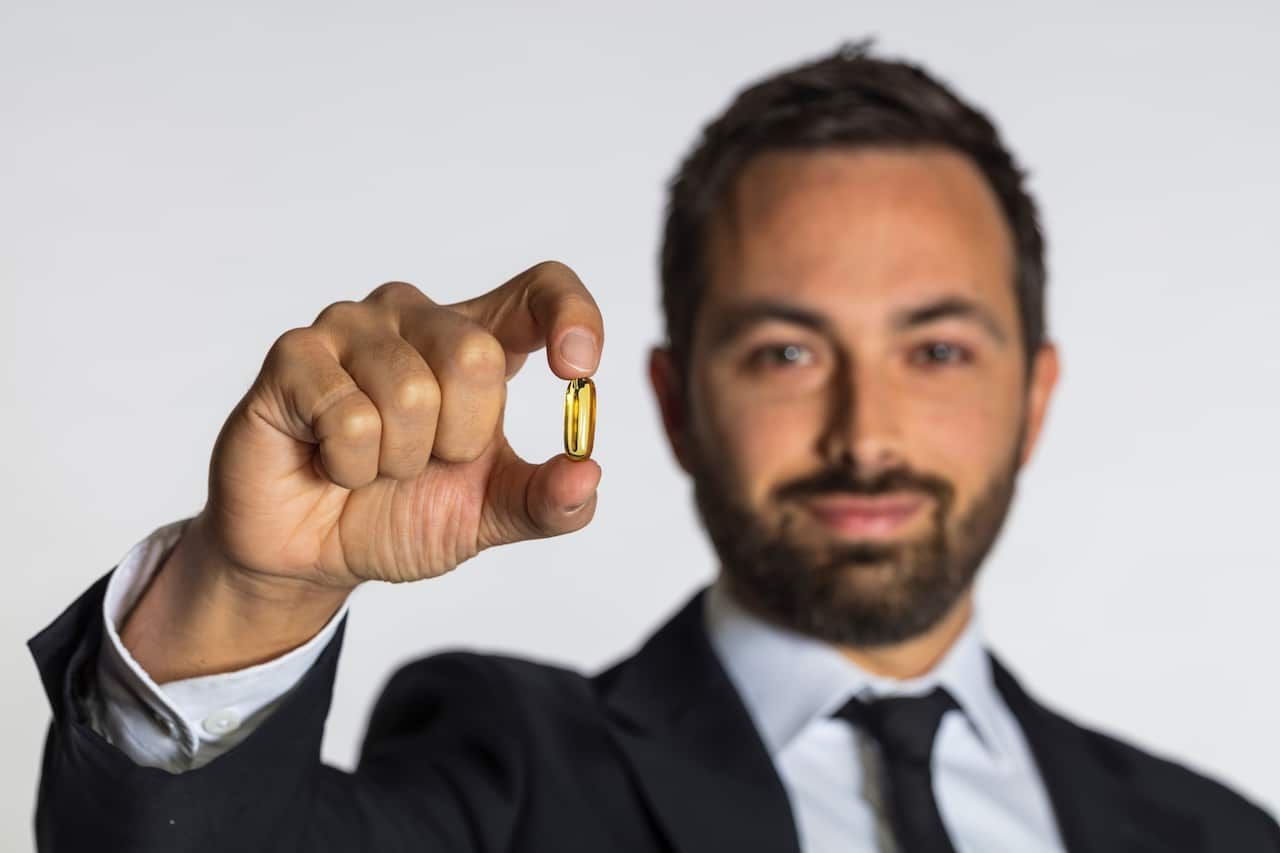Becky Jackson lives in Nebraska in the United States with her young children, Joe and Elizabeth, who are twins. She breastfed both babies, but when it became clear she wasn’t producing enough milk to support them both, she switched Elizabeth – the less fussy baby – to an organic formula from the local health store.
Soon, however, Elizabeth became unwell. When her concerned mother took her to the doctor, a blood test revealed that the baby had toxic levels of Vitamin D, causing dangerously high levels of calcium in her blood that put her at risk of kidney failure.
Becky had been supplementing Elizabeth’s formula with Vitamin D in the belief it would improve the baby’s health and help compensate for missing out on breastmilk, when in fact she had been accidentally poisoning her daughter with more than the adult daily requirement of the vitamin. Fortunately, baby Elizabeth made a full recovery.

The vitamin industry is huge – around the world, we spend $100 billion on vitamins and supplements every year. We often think only about the purported benefits of taking supplements, not the risks. But as the Jackson family’s experience shows, it is possible to overdose on vitamins.
The word ‘overdose’ is often associated with a drug overdose “where you take a lot of a particular drug and there are immediate toxic effects,” says Dr Ian Musgrave, a molecular pharmacologist at the University of Adelaide. “With vitamins, it's usually a long-term effect of continuous consumption at high levels.”
This is a particular issue for fat soluble vitamins like D and A. “If they build up in the fat, it takes a while to build up to levels where you start seeing toxicity,” he says, quoting 15th century physician Paracelsus: “It’s the dose that makes a poison.”
Too much Vitamin D will cause toxicity for the same reason it's essential for health, says Dr Musgrave. Vitamin D helps the body regulate calcium, necessary for bone growth. Dr Musgrave said too much calcium in the blood due to high levels of Vitamin D causes hypercalcaemia, a serious condition that can lead to kidney failure and death.
When her concerned mother took her to the doctor, a blood test revealed that the baby had toxic levels of Vitamin D, causing dangerously high levels of calcium in her blood that put her at risk of kidney failure.
Vitamin A toxicity is known as Hypervitaminosis A, a condition that famously affected Antarctic explorer Sir Douglas Mawson and killed his teammate Xavier Mertz after they ate the livers of their sled dogs to stave off starvation during a harrowing 1913 expedition. The condition “is quite rare at the moment, although back in the sixties and seventies there were cases due to people eating lots of seal liver,” says Dr Musgrave. “These days consumption of seal liver is not high on anyone's menu and so that's disappeared.”
Excessive consumption of other vitamins can have adverse effects that are non-fatal. “Very high levels of Vitamin C taken continuously can result in the formation of kidney stones, which while not necessarily lethal, can be exceedingly painful,” he says.
Why people overdose
The most common reason people overdose on vitamins is because they have taken more than the recommended dose, usually for prolonged periods.
Problems can also arise when we fail to treat vitamins as medicines. Tragically, accidental iron overdose is one of the leading causes of poisoning among young children in Australia. Its effects can include everything from vomiting to unconsciousness and death. In many cases, children overdose after they find their parent’s bottle of iron tablets and ingest the contents believing the colourful contents are confectionary. “They're brightly coloured, they're quite often sugar coated and their parents often think that they're harmless – they're vitamins and vitamins can't hurt you – so they're not stored with the same degree of care that standard pharmaceuticals are,” says Dr Musgrave. “They're much easier for kids to get to and take a lot, because they think they're lollies.”
Vitamins and minerals are essential to health – if you’re deficient, you should be treated. “If you have a vitamin deficiency or you have a medical condition which makes it hard for you to absorb iron, for example, or Vitamin B, and there's a number of these examples, then vitamin supplementation is very important,” says Dr Musgrave.
But most healthy people who eat a balanced diet, including children, don’t need to take vitamins, says Dr Musgrave. “If you're going to be giving children multivitamins, make sure they're treated as pharmaceuticals and kept out of reach and locked away.”
Nicola Heath is a freelance writer. You can follow her on Twitter @nicoheath or Instagram @nicola_heath.
Vitamania premieres Sunday 12 August, 8.30pm on SBS. The documentary will be available after broadcast via SBS On Demand. Join the conversation @Vitamaniamovie #Vitamania, visit www.vitamaniathemovie.com


